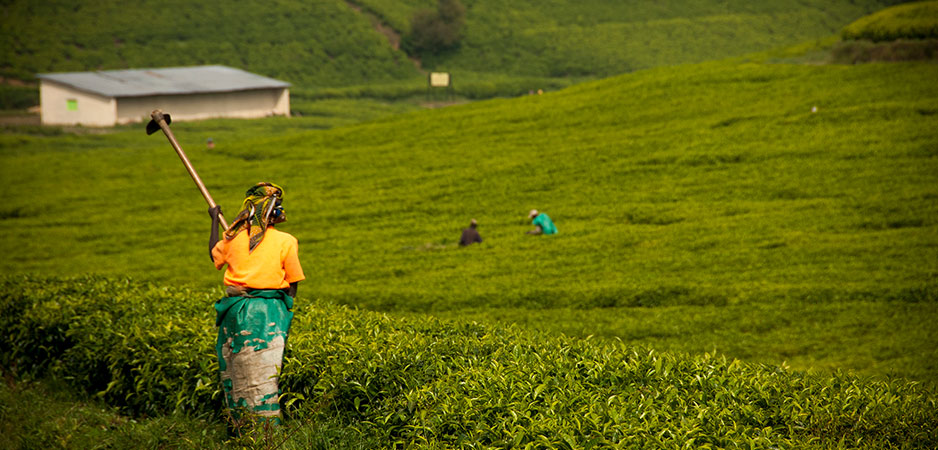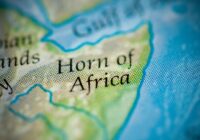With border closures, supply chain interruptions and loss of income due to lockdowns caused by COVID-19, the number of people facing acute hunger around the world is estimated to rise from 135 million to 265 million this year. This is particularly the case in sub-Saharan Africa, where before the pandemic 20% of all citizens were already considered undernourished and 277 million people out of the continent’s 1.28 billion population faced severe food insecurity.
Although sadly not a new phenomenon for Africa, this unprecedented level of hunger is unnecessary and presents an opportunity to reassess the status quo of food production on the African continent. The UN Food and Agriculture Organization estimates that $1 trillion of food is lost or wasted every year — approximately one-third of the world’s food, or enough to feed 2 billion people. The United States alone wastes roughly 30% to 40% of its annual food supply.
Twofold Approach
Why then is hunger such a challenge in Africa? Home to over 60% of the world’s uncultivated arable land, the African continent has the capability to produce enough food to feed itself and perhaps the rest of the world. However, many African countries currently import the majority of their staple foods worth $35 billion a year even if they have means to produce it. Nigeria, for example, imports over a third of the rice it consumes, whereas South Sudan has few sources of local food production and is completely reliant on food aid.
The present hunger situation in Africa requires a twofold approach: a significant humanitarian response to address immediate needs of those facing starvation this year, along with medium and long-term measures to improve food access and production for African citizens. Fortunately, several solutions exist that government, international aid and private sector partners can build upon and scale to alleviate Africa’s present and future food shortages.
First is increasing farming productivity. Studies suggest using new farming practices to increase small-scale farmers’ crop yields could triple the production of staple goods such as maize in sub-Saharan Africa. Sustainable farming practices in particular benefit the environment and allow farmers to generate more income on their harvests each season. The One Acre Fund, Acumen Fund and Alliance for a Green Revolution in Africa are great examples of organizations currently equipping small-scale farmers with tools such as training, financing and access to new seeds and equipment to improve their crop yields.
Then comes addressing structural barriers. This includes addressing land issues and crossborder trade tariffs that hinder regional food production and distribution. Land ownership is often a challenge for small-scale farmers, especially in rural areas where there are few legal mechanisms to determine who can own or lease land. African farmers lose approximately 40% of each harvest due to crop decay, and so initiatives such as creating central storage and drying facilities have allowed farmers to store fresh food and get it to market with fewer losses. Regional trade barriers and lack of roads also limit how much food can be distributed across the continent, and implementing policies like the African Continental Free Trade Area agreement would promote regional market integration and provide farmers more opportunities to sell their goods.
Tech and Added Value
There is also a need to incorporate new technologies. There are now more digital financial services and fintech products available to African farmers than ever before. These range from blockchain technologies and cryptocurrencies that help small-scale farmers gain access to credit in order to buy seeds to new apps and data-centered farming resources.
Mobile applications such as iCow, FeoFarmer, Hello Tractor and Precision Agriculture for Development provide information about livestock, farming techniques and equipment rentals to assist farmers in their decision-making, while initiatives like Digital Green provide video training resources for farming communities in Ethiopia. There is also great potential to develop apps to better coordinate food production, storage and delivery logistics as well as use of drones in facilitating this process.
Finally, there needs to be a focus on value addition. African countries largely export raw materials but import finished products, thereby losing the ability to generate greater revenue for their existing natural resources. Agriculture is no different. For example, Africa produces 75% of the world’s cocoa supply but receives only 2% of the $100 billion a year produced by chocolate sales worldwide. This means countries experience greater losses if the price of raw goods fluctuates, which in turn negatively impacts small-scale farmers. In addition to increasing revenues, value addition — or increasing a good’s value through added processing — is proven to help create jobs.
As Africa faces a future of increased population and climate change, the current challenges of food waste, production and hunger will only become more prominent. Although the solutions identified here will not result in immediate changes, they can provide a critical foundation for restructuring agricultural production and food distribution in Africa. COVID-19 does not yet have a known cure, but hunger does, and its current magnitude should serve as a wake-up call for both Africa and the international community to act today and address a burgeoning yet solvable crisis.
*[Young Professionals in Foreign Policy is a partner institution of Fair Observer.]
The views expressed in this article are the author’s own and do not necessarily reflect Fair Observer’s editorial policy.
Support Fair Observer
We rely on your support for our independence, diversity and quality.
For more than 10 years, Fair Observer has been free, fair and independent. No billionaire owns us, no advertisers control us. We are a reader-supported nonprofit. Unlike many other publications, we keep our content free for readers regardless of where they live or whether they can afford to pay. We have no paywalls and no ads.
In the post-truth era of fake news, echo chambers and filter bubbles, we publish a plurality of perspectives from around the world. Anyone can publish with us, but everyone goes through a rigorous editorial process. So, you get fact-checked, well-reasoned content instead of noise.
We publish 2,500+ voices from 90+ countries. We also conduct education and training programs
on subjects ranging from digital media and journalism to writing and critical thinking. This
doesn’t come cheap. Servers, editors, trainers and web developers cost
money.
Please consider supporting us on a regular basis as a recurring donor or a
sustaining member.
Will you support FO’s journalism?
We rely on your support for our independence, diversity and quality.






